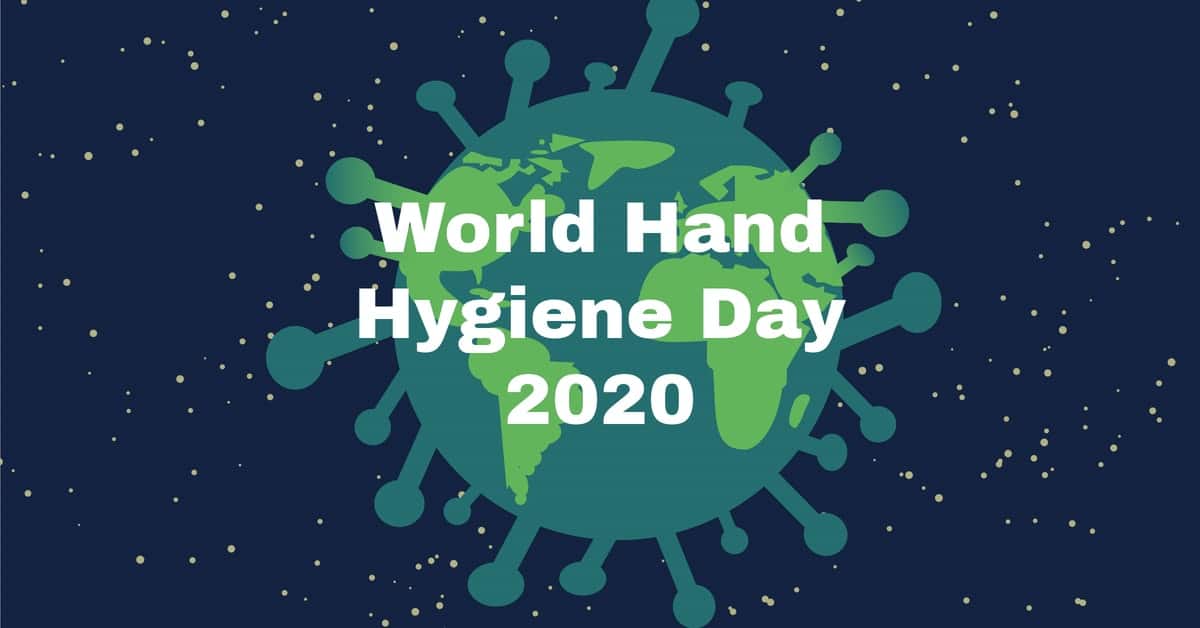May 5th, 2020, is World Hand Hygiene Day, where we are each reminded by the World Health Organization (WHO) to SAVE LIVES: Clean your hands.

Save Lives: Clean Your Hands
Regular deep cleaning and high-performance facility disinfection is critical to the health and safety of building occupants.
Equally important is occupant hand hygiene, which is crucial for maintaining facility cleanliness levels and preventing the spread of germs and bacteria.
The goal of this year's Global Hand Hygiene Day is to:
- Help prioritize hand hygiene globally.
- Inspire socially positive behavior, and;
- Engage with sanitation and health care workers in their roles of pathogen transmission prevention.
According to the WHO;
The main goal of the Global Hand Hygiene Day campaign is to recognize that handwashing is one of the most effective actions you can take to reduce the spread of pathogens and prevent infections.
The campaign also makes a call to action to policy-makers to provide safe work environments for nurses and improve staffing levels.
Additionally, it calls on infection prevention and control leaders to empower nurses and midwives in providing clean care.
The campaign also contributes to the United Nations Secretary General’s Global Call to Action on WASH in health care facilities.
Why Hand Hygiene Matters
Washing your hands--it seems like such a simple thing, and yet, it is estimated that the vast majority of humanity is not washing their hands correctly, if at all.
A study published by the Minnesota Department of Health is eye-opening.
Researchers looked at people using public restrooms and how many washed their hands after using the facilities.
The results showed that only between 64% to 75% of women washed their hands and between 30% to 51% of men did.
These studies also found that only 5% of people who did wash their hands, did so long enough for them to kill germs on their hands.
While that may appear inconsequential, globally, those numbers add up.
According to the U.S. Centers for Disease Control and Prevention (CDC):
- It is estimated that washing hands with soap and water could reduce diarrheal disease-associated deaths by up to 50%.
- Researchers in London estimate that if everyone routinely washed their hands, a million deaths a year could be prevented.
- Handwashing can reduce the risk of respiratory infections by 16%.
Source:
How to Participate
Business owners, as well as facility and office managers, can encourage active participation in World Hand Hygiene Day, every day, by:
- Promoting it within their organization - This can be accomplished through reminder posters in the restrooms and workplace wellness communications.
- Encouraging socially positive behavior - While social pressures can often appear extreme at times, it is up to each of us to ensure that we are doing our part to protect ourselves and the lives of those around us.
- Maintaining high-quality facilities - A clean, well-supplied restroom is often the pivotal point between a facility with a high level of hand hygiene compliance and one where germs and illness routinely negatively impact occupant health and performance, so make sure your facilities' restroom is spotless and fully stocked.
- Paper towels - Washing your hands for twenty seconds at critical points of the day are crucial to promoting and maintaining health and wellness, but second to that is drying your hands properly. Wet hands spread germs faster than dry hands. Airblown hand dryers spread germs even faster than that, so make sure your facility is stocked with high-quality paper towels and that the trashcan is regularly emptied to prevent them from landing on the floor or being tossed onto the counter.
- Hand sanitizer - Hand sanitizer, much like a disinfectant, works best after cleaning your hands with soap and water, but in a pinch, it's better than nothing and can help remove any residual germs and bacteria remaining on a person's hands after exiting the restroom. Make sure to follow the instructions and lather your hands with it, then allow it to air dry without rubbing it in. Also, much like any other antibacterial product, make sure not to overdo it, or you could put yourself at risk for infection.
References & Resources
Takeaway
Hand hygiene saves lives by maintaining the sanitation levels of surfaces in publicly accessible facilities by preventing the most common method of germ transmission--touch.
Just a few minutes a day with regular soap and water has been shown to have a positive impact on student attendance, community health, and national GDP's.
An experienced janitorial service provider can help your team assess your current plan and risk level and assist with establishing a workplace wellness strategy that meets organizational directives while protecting building occupants, guests, and their families.
Contact us today and discover why Vanguard Cleaning Systems® is the Standard of Clean® for businesses throughout Northwest Arkansas, Missouri, and Oklahoma.
In Oklahoma, dial 918-960-4450
In Arkansas, dial 479-717-2410
In Missouri, dial 417-812-9777

